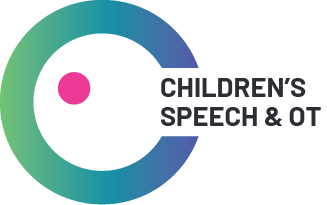FAQs
Signs to look for when your child is developing speech
At 6 months your child should be:
- Simple babbling bababa
- Turning their head or eyes toward a sound
- Watching your face when you speak
- Smiling and responding to your interaction.
At 12 months your child should be:
- Saying their first words e.g. dad, mum
- Pointing to things that they want and bring toys to show you
- Understanding 3-50 words.
At two years your child should be:
- Using more than 50 words
- Beginning to combine words, such as “push car”
- Following simple one-step instructions .
At three years your child should be:
- Using lots of words (approximately 300)
- Using simple sentences of 3-4 words, such as “big car go”
- Naming things they know well and asking and answering simple questions
- Understood 70% of the time by familiar people, such as Mum.
At four years your child should be:
- Be able to say most speech sounds clearly, possibly struggling with th, R’s and blended combinations such as sl, dr, fl, str, tr etc.
- Begin to comprehend and use complex sentences
- Uses and understand what, where, who and why questions and building skills with how and when questions.
You may also want to seek help if your child:
- looses skills or regresses at any age, ie stops using or understanding words previously known, behaviour, sleeping, eating significantly deteriorates
- Interacts poorly with adults or children
- becomes stuck/repeats words or part words. Stuttering can often begin a round ¾ years. It may improve without therapy in the first 12 months, but seeking advice can be helpful. If nearing school age and stuttering still apparent, even if mild, we urge seeking therapy
- Has had a hoarse/croaky voice for a long time, not from a cold or flu
- Has difficulty swallowing or eating
- Is experiencing academic difficulties.
Disclaimer
To the best of The Speech Pathology Association of Australia Limited’s (“the Association”) knowledge, this information is valid at the time of publication. The Association makes no warranty or representation in relation to the content or accuracy of the material in this publication. The Association expressly disclaims any and all liability (including liability for negligence) in respect of use of the information provided. The Association recommends you seek independent professional advice prior to making any decision involving matters outlined in this publication.
Do I need a Doctors referral to see a Speech Pathologist?
No, you can just call or email and book an appointment. In the case that your child qualifies for Medicare rebates, a GP will complete the referral for a Chronic Disease Management Plan
My kinder teacher thinks my child has a speech sound disorder. What do they mean?
Most children make some mistakes as they learn to say new words. A speech sound disorder occurs when mistakes continue past a certain age. Speech sound disorders include problems with articulation (making sounds) and phonological processes (sound patterns). Please see norms for ages that errors should no longer be made for each sound. It is important to fix these errors so that a child can be understood by their friends, parents and teachers, so that it does not impact on their literacy skills as well as preserve their self-esteem.
My child seems to get stuck and repeat words. Is this a stutter?
Some children recover naturally from stuttering, however it is best to seek an assessment by a Speech Pathologist if your child has been stuttering for more than 6 months
What is Autism Spectrum Disorder?
You can find out information on Spectrum Disorder at amaze.org.au
